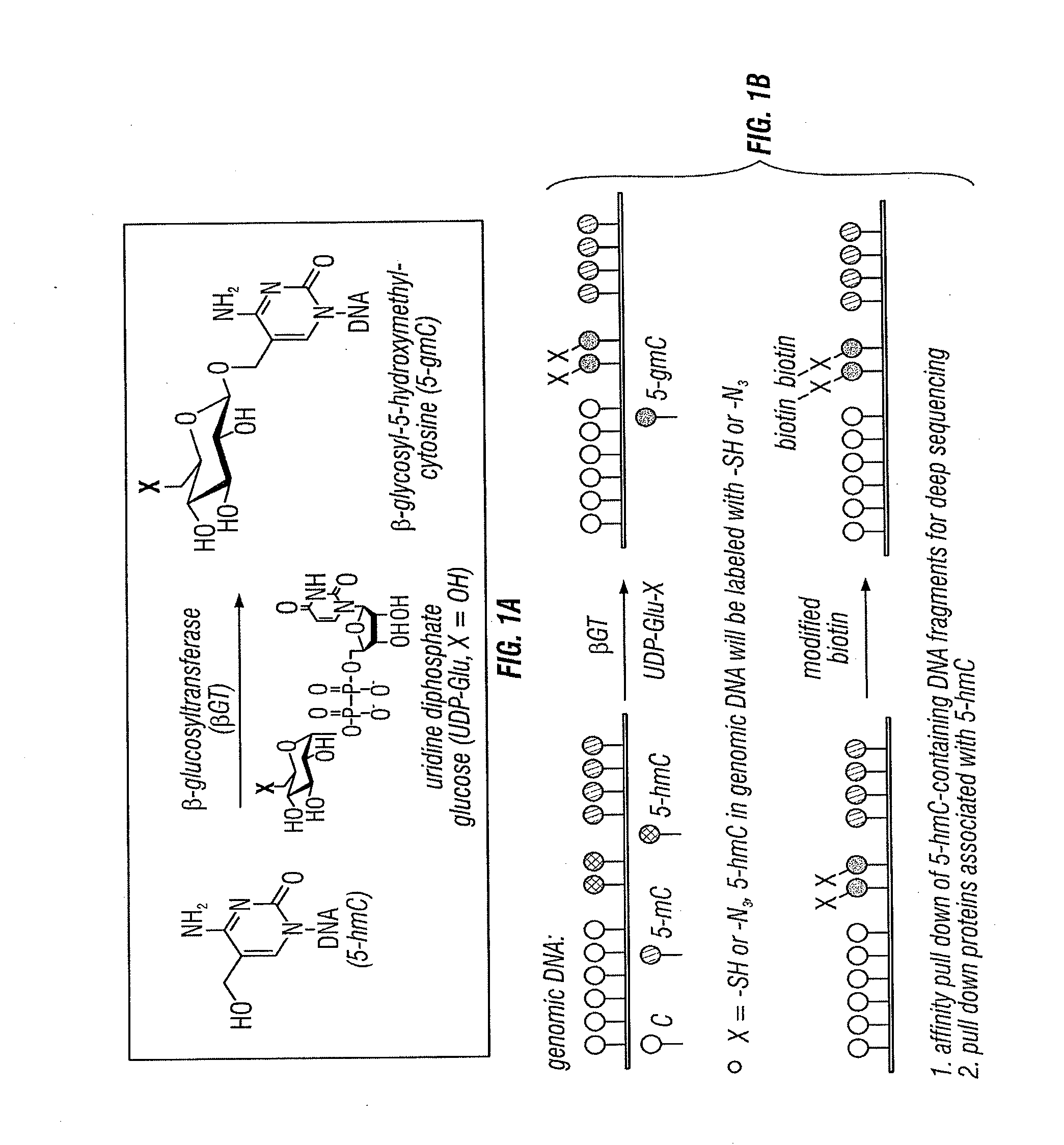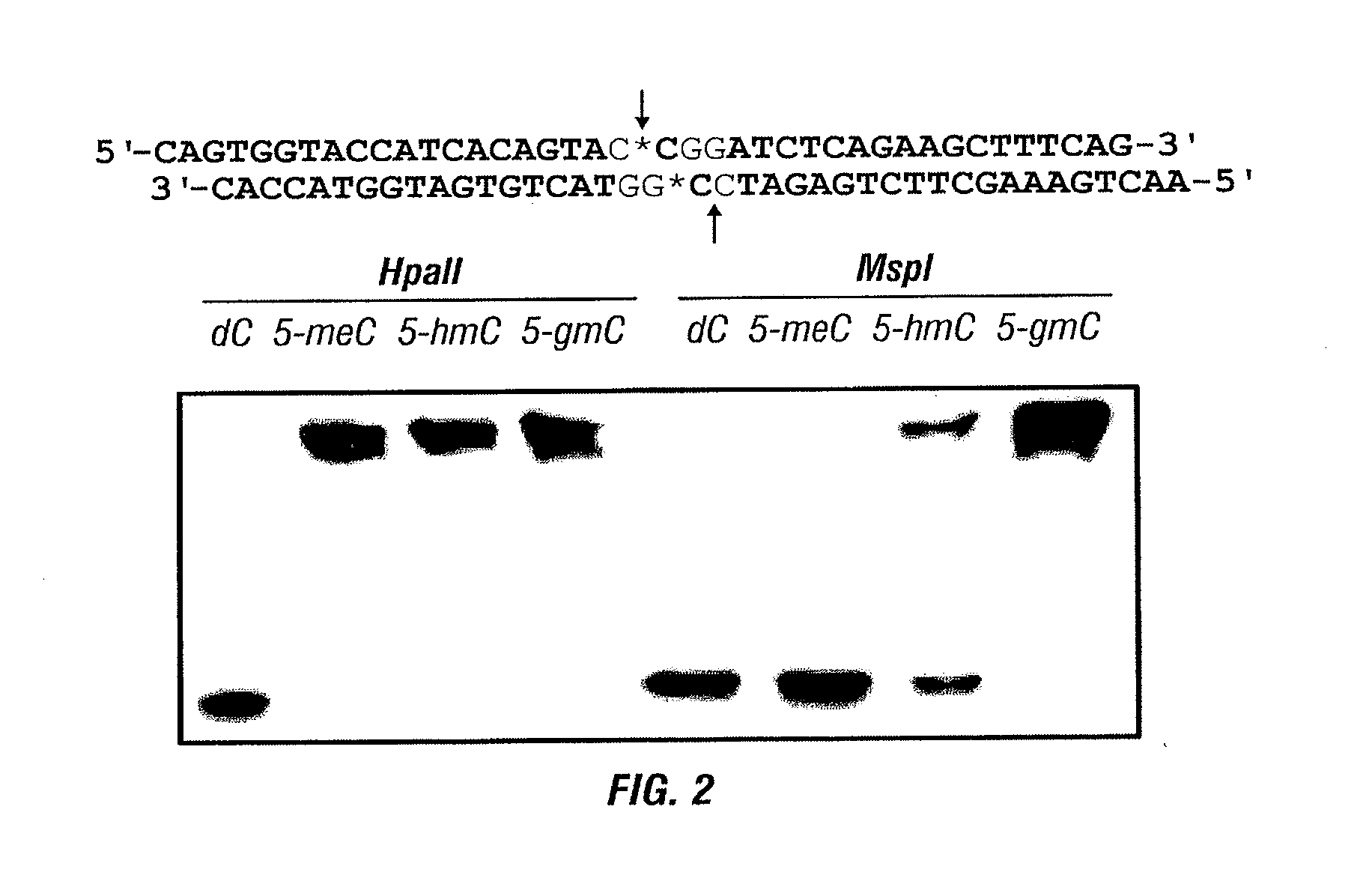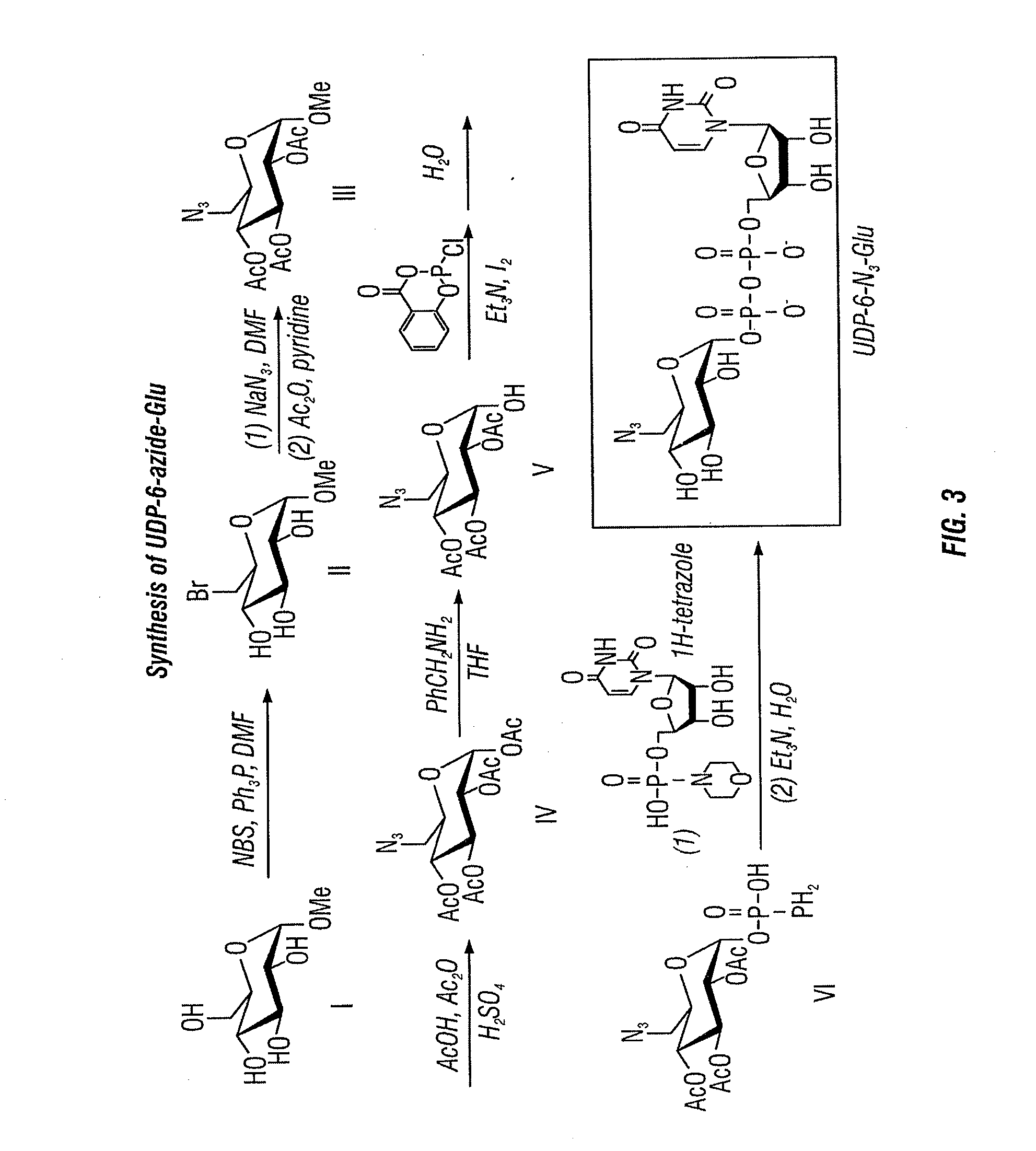Composition and Methods Related to Modification of 5-Hydroxymethylcytosine (5-hmC)
a technology of methylcytosine and cytosine base, which is applied in the field of molecular biology, can solve the problems of inability to distinguish between methylcytosine and methylcytosine, and achieve the effect of improving the detection efficiency and sensitivity of methylcytosine bas
- Summary
- Abstract
- Description
- Claims
- Application Information
AI Technical Summary
Benefits of technology
Problems solved by technology
Method used
Image
Examples
example 1
Labeling of 5-HMC
[0161]To elucidate the biology of 5-hmC, the first step is to identify the locations of 5-hmC within genomic DNA, but so far it has remained challenging to distinguish 5-hmC from 5-mC and to enrich 5-hmC-containing genomic DNA fragments.
[0162]Widely used methods to probe 5-mC, such as bisulfite sequencing and methylation-sensitive restriction digestion, cannot discriminate between 5-hmC and 5-mC (Huang et al., 2010; Jin et al., 2010). Anti-5-hmC antibodies have only recently become commercially available. However, attempts to use the antibodies to immuno-enrich 5-hmC-containing genomic DNA from complex genomes for sequencing have yet to be successful (Ito et al., 2010). A single-molecule, real-time sequencing technology has been applied to distinguish between cytosine, 5-mC and 5-hmC, but further improvements are necessary to affinity-enrich 5-hmC-containing DNA and to achieve base-resolution sequencing (Flusberg et al., 2010).
[0163]In certain aspects, the inventors...
example 2
Detection of 5-Hydroxymethylcytosine in a Combined Glycosylation Restriction Analysis (CGRA) Using Restriction Enzyme TaqαI
[0225]Here the inventors describe an example of using of a methylation-insensitive restriction enzyme coupled with selective chemical labeling of 5-hmC in a Combined Glycosylation Restriction Analysis (CGRA) to detect 5-hmC in TCGA sequences. This example provides a proof of principle demonstration using the methylation-insensitive restriction enzyme TaqαI. This method, differentiates fully versus hemi-hydroxymethylated cytosine in the CpG dinucleotide, adds a new tool to facilitate biological studies of 5-hmC.
[0226]As described herein, the inventors developed a chemical labeling method to selectively label 5-hmC with glucose by β-glucosyltransferase (βGT), e.g., an azide modified glucose. The glucose is subsequently coupled to a probe that allows detection of 5-hmC in genomic DNA (Song et al., 2011). With this method, 5-hmC-containing genomic DNA fragments can ...
PUM
 Login to View More
Login to View More Abstract
Description
Claims
Application Information
 Login to View More
Login to View More - R&D
- Intellectual Property
- Life Sciences
- Materials
- Tech Scout
- Unparalleled Data Quality
- Higher Quality Content
- 60% Fewer Hallucinations
Browse by: Latest US Patents, China's latest patents, Technical Efficacy Thesaurus, Application Domain, Technology Topic, Popular Technical Reports.
© 2025 PatSnap. All rights reserved.Legal|Privacy policy|Modern Slavery Act Transparency Statement|Sitemap|About US| Contact US: help@patsnap.com



